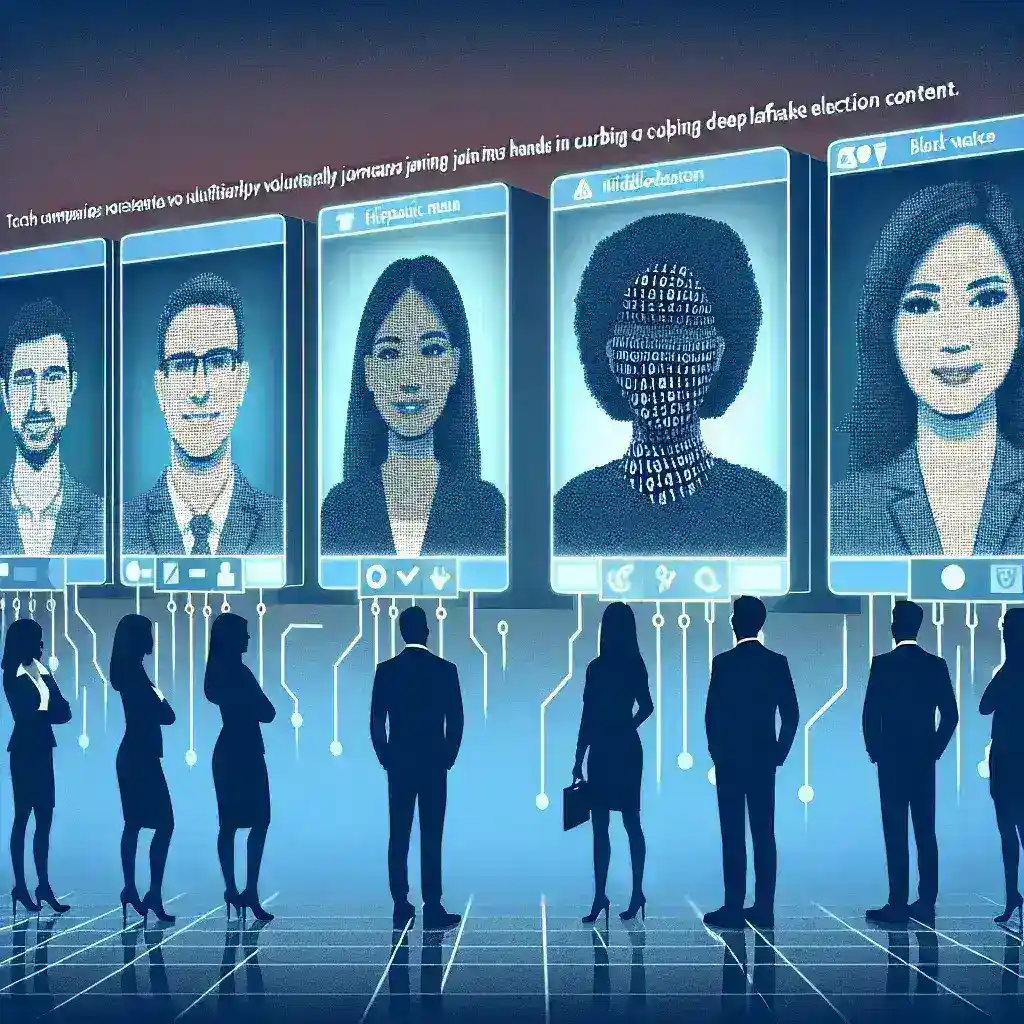Introduction
As technology advances at an unprecedented pace, so do the challenges associated with it. One of the most pressing issues today is the proliferation of deepfake content, particularly in the context of elections. Recognizing the potential threats posed by manipulated media, several major tech firms have come together to sign a voluntary pledge aimed at implementing deepfake election content provenance tags. This initiative seeks to enhance the authenticity of information shared during election periods and combat misinformation effectively.
Understanding Deepfakes
Deepfakes are synthetic media created using artificial intelligence and machine learning techniques. They can produce hyper-realistic representations of people, making it difficult for viewers to distinguish between what is real and what is fabricated. While deepfakes can be used for creative purposes, such as in films and entertainment, their potential for misuse, especially in political contexts, is a significant concern.
The Rise of Deepfake Technology
The emergence of deepfake technology has been meteoric, with its roots tracing back to the development of generative adversarial networks (GANs). These networks have allowed for the manipulation and creation of videos that can convincingly portray individuals saying or doing things they never actually did. As this technology becomes more accessible, the risk of its application in misinformation campaigns grows, threatening the integrity of democratic processes.
The Need for Provenance Tags
Provenance tags serve as a digital signature that verifies the authenticity of media content. By implementing these tags for election-related materials, tech firms aim to provide viewers with critical information about the origin of the content they consume. This initiative is essential for the following reasons:
- Combat Misinformation: Provenance tags can help users discern between credible information and manipulated content.
- Enhance Transparency: Providing clear information about the origins of media builds trust among users.
- Promote Accountability: By tracing the source of content, it becomes easier to hold creators accountable for malicious deepfake videos.
The Voluntary Pledge
In a landmark move, several leading tech companies have signed a voluntary pledge to adopt standards for deepfake election content provenance tagging. This collaborative effort demonstrates a commitment to securing the electoral process against misinformation. The pledge includes key elements such as:
- Implementation of Standards: Developing industry-wide standards for tagging deepfake content.
- Collaboration Across Platforms: Engaging with social media platforms, search engines, and content creators to ensure widespread adoption.
- Regular Reporting: Committing to report on the effectiveness of these tags and the prevalence of deepfake content.
Key Participants
Major players in the tech industry, including social media giants and content-sharing platforms, have joined forces in this initiative. Their participation underscores the importance of a united front in addressing the challenges posed by deepfake technology. Notable participants include:
- Microsoft
- Snap Inc.
Historical Context
The conversation surrounding deepfakes and misinformation is not new. However, the escalation of these issues during significant political events, such as elections, has prompted a more urgent response. Previous elections have witnessed attempts to spread false information through manipulated videos, leading to public confusion and distrust. The historical context surrounding these events highlights the necessity for proactive measures like the voluntary pledge.
Future Predictions
As we look to the future, the implications of this pledge could be profound. The effectiveness of provenance tags in combating misinformation may set a precedent for future technological standards. Potential outcomes include:
- Increased Trust in Media: By verifying the authenticity of content, users may feel more confident in the information being presented.
- Regulatory Changes: Governments may begin to establish regulations surrounding deepfake content and its use in elections.
- Technological Advancements: The ongoing evolution of deepfake technology may lead to the development of more advanced tagging systems.
Pros and Cons of the Pledge
Pros
- Misinformation Mitigation: Provenance tags can significantly reduce the spread of false information.
- Public Awareness: The initiative raises awareness about the existence and risks of deepfake content.
- Collaboration: It fosters collaboration among tech companies, which can lead to more comprehensive solutions.
Cons
- Implementation Challenges: Developing and enforcing standards across platforms can be complex and resource-intensive.
- Potential for Misuse: There is a risk that bad actors may find ways to circumvent these tags.
- Dependency on Technology: Users may become overly reliant on tags and less discerning in their information consumption.
Real-World Examples
Several instances of deepfake technology have already made headlines, emphasizing the need for this initiative:
- A deepfake video of a political leader appearing to endorse a controversial policy circulated widely during an election cycle, leading to public outrage.
- Manipulated videos of candidates misrepresenting their statements have surfaced, further complicating the electoral landscape.
Cultural Relevance
The cultural implications of deepfake technology and misinformation are profound. As society becomes increasingly digital, the lines between reality and fiction blur. This phenomenon is particularly relevant in political discourse, where trust is paramount. The voluntary pledge serves as a cultural touchstone, signaling a collective recognition of the dangers posed by manipulated media.
Statistics and Expert Opinions
Recent studies reveal that a significant portion of the population is concerned about misinformation in the digital age. According to a survey conducted by the Pew Research Center, approximately 64% of Americans believe that fabricated news is causing confusion about current events. Experts in the field advocate for transparency measures, emphasizing that provenance tags could be a valuable tool in maintaining the integrity of information.
Conclusion
The signing of the voluntary pledge by tech firms represents a crucial step in addressing the challenges posed by deepfake election content. By implementing provenance tags, these companies are taking proactive measures to combat misinformation and protect the democratic process. As technology continues to evolve, ongoing collaboration and innovation will be essential in ensuring a trustworthy digital landscape.

